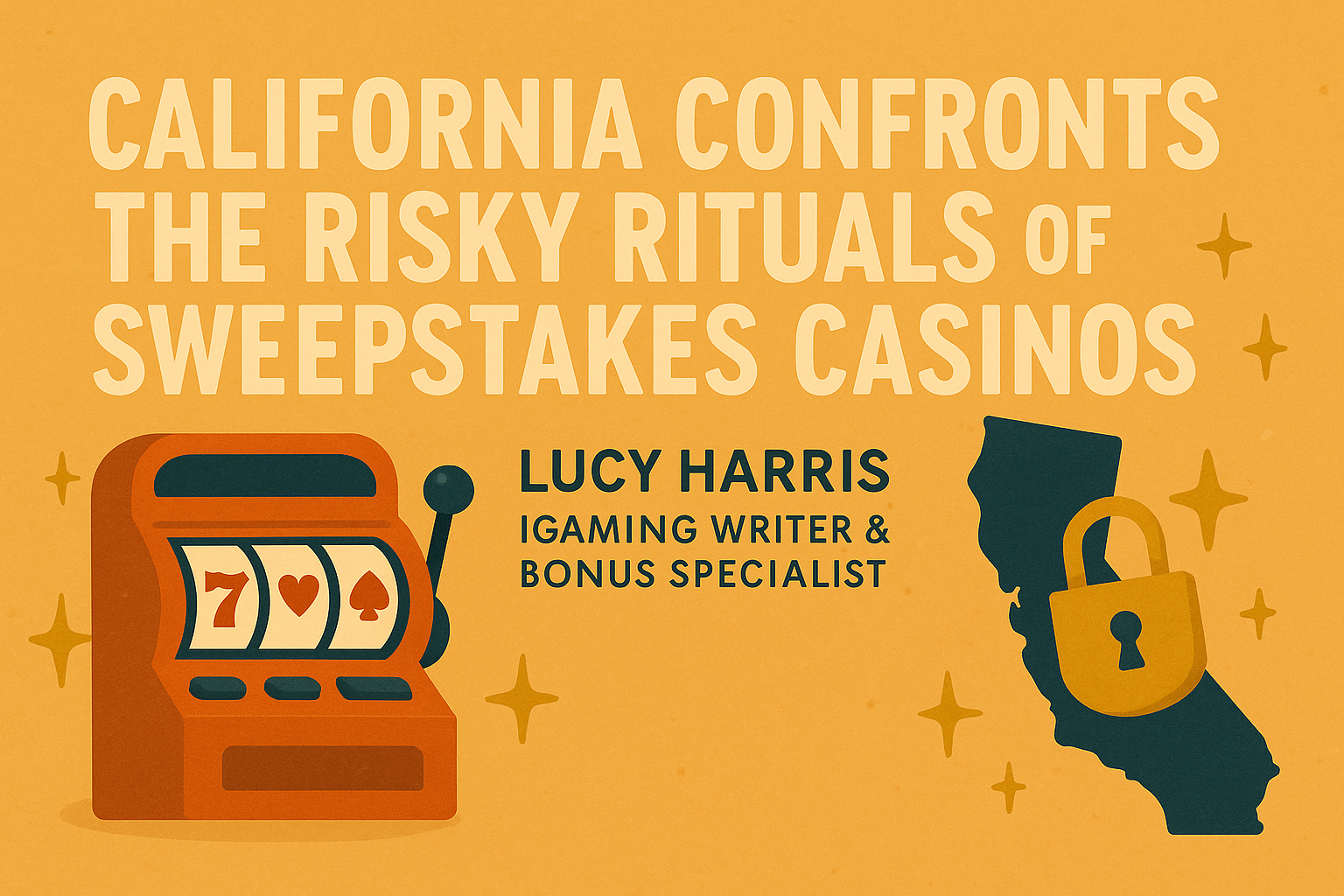
California Confronts the Risky Rituals of Sweepstakes Casinos, Redrawing the Lines Between Play and Protection
As an iGaming content specialist, I’m drawn to the places where digital play, player safety and bonus strategies overlap. Sweepstakes casinos are a vivid example of that overlap, a creative workaround that replicates the excitement of gambling while avoiding the strict rules meant to protect players. I follow these platforms because they force us to ask tough questions: What does fair really look like? Where do we draw the line between innovation and harm?
California’s effort to ban sweepstakes casinos through Assembly Bill 831 brings those questions into sharp focus. Nearly a million Californians have made these games part of their daily routines, a moment of luck, a flash of hope, a quick escape. Supporters of the bill say banning these platforms protects tribal gaming rights and closes dangerous loopholes. Critics worry the legislation is moving too fast, pushed through by a controversial “gut-and-amend” process that limits public debate.
California’s Sweepstakes Footprint
California isn’t just another player in sweepstakes casinos; it is the nation’s largest and most active hub. The state leads the country in participation, boasts the highest number of reported winners and sees about 92% positive sentiment among its players, with a market engagement index of 76.97 out of 100.
More than 130 sweepstakes platforms legally operate under promotional laws, filling the gap left by California’s ban on traditional online casinos. States like Texas or Florida also have big sweepstakes audiences, but they can’t match California’s scale. In places like New Jersey, Pennsylvania and Michigan, where regulated online gambling is allowed, sweepstakes platforms barely register, because players can legally use real-money online casinos.
Why Change Now?
For lawmakers, the worry is simple: fairness and safety. Sweepstakes casinos walk a fine line, functioning so much like traditional gambling that they blur the rules meant to protect players. Tribal coalitions argue these platforms break down their guaranteed exclusivity, while encouraging risky gambling behavior with no oversight.
AB 831 is California’s answer to closing that gray area. Proponents say a ban will protect consumers from manipulative practices and keep the market fair for licensed gaming partners. Still, critics argue that rushing the bill through with a gut-and-amend strategy risks public trust and deserves more open discussion.
A Bigger National Picture
California isn’t alone in facing this debate. Montana and Connecticut have already banned sweepstakes casinos outright and New York is close to passing a similar measure. States like Louisiana, Nevada and Mississippi have issued cease-and-desist orders to sweepstakes operators who test the limits of the law.
Altogether, these moves point to a deeper question for the iGaming world: How can we encourage creative, engaging promotions while still protecting players? Sweepstakes casinos were born from a legal loophole, but their popularity has exploded far beyond what regulators expected.
What Happens When Rituals Disappear?
If Assembly Bill 831 passes, nearly a million people may have to find somewhere else for their daily streak of luck. Some might turn to fantasy sports, social casinos, or skill-based games. Others may push to legalize fully regulated online casinos instead.
These platforms do more than serve up prizes. They offer a moment of optimism, a break from routine, a tiny thrill to hold onto. Taking that away overnight might leave an emotional , even cultural , gap that policymakers aren’t fully thinking through. The gambling industry is famous for adapting fast, but for players, it might feel like losing a small but meaningful part of their daily rhythm.
Final Reflection
Stories like this remind me why I love covering iGaming. Sweepstakes casinos are more than a loophole; they’re a window into how we manage hope, excitement and risk in our online lives. California’s push to end them is about more than policy; it’s about people, habits and the quiet dreams woven into a simple game.
In the end, gambling regulation is never just about rules. It’s about what we value, what we fear and how far we’re willing to go to protect ourselves, or to take a chance.
Sources:
https://a68.asmdc.org/press-releases/20250624-assemblymember-valencia-d-anaheim-authors-ab-831
https://sbcamericas.com/2025/06/24/california-bill-online-sweepstakes
https://www.casino-bonus.club/insights/california-moves-to-ban-online-sweepstakes-casinos
Post a comment